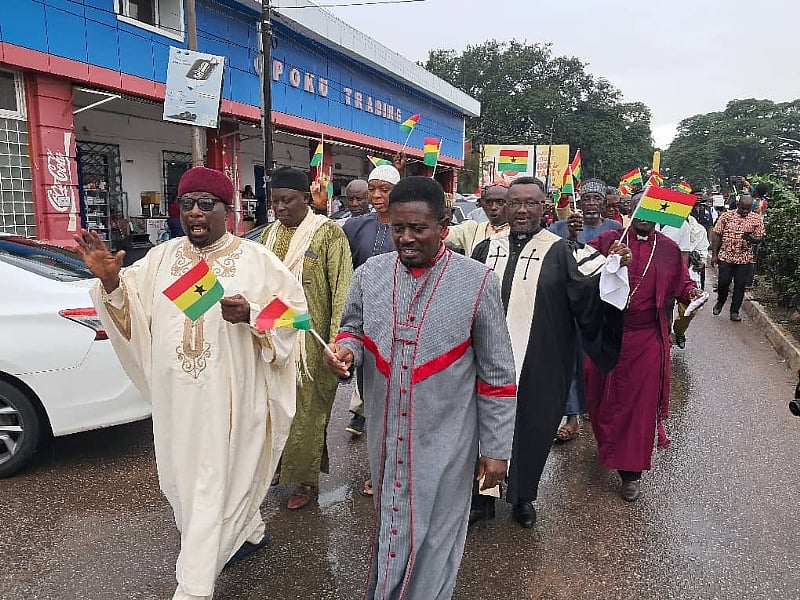On October 1, 2023, a gathering of religious leaders, including pastors and imams, marched through the main streets of Kumasi to advocate for peace ahead of the upcoming 2024 presidential and parliamentary elections in Ghana. This event aimed to unify the communities and emphasize the significance of maintaining harmony during the electoral process. The demonstration underscored the role that faith leaders can play in guiding their congregations and the broader public toward peaceful engagement during politically charged times. By taking to the streets, these religious figures pushed for a collective commitment to peace, setting a tone of cooperation and understanding within the electorate.
In addition to their march, the religious leaders held discussions with officials from the Electoral Commission (EC). They urged the commission to remain diligent in their responsibilities, highlighting the critical role that the EC plays in ensuring free and fair elections. This interaction underscored the importance of collaboration between political and religious institutions in promoting the integrity of the electoral process. By reinforcing their confidence in the EC’s capabilities, the leaders sought to bolster public trust in the electoral management body, which is essential for the stability of democratic processes.
The timing of the march coincided with a significant Inter-Party Advisory Committee (IPAC) meeting held by the EC with various political parties and stakeholders. This meeting was deemed historic as it aimed to address pressing concerns surrounding the voters’ register and the general preparedness for the upcoming elections. The presence of religious leaders at this meeting reflects the growing recognition of the interplay between faith, governance, and community engagement in fostering a peaceful political climate. Their involvement symbolizes a holistic approach to problem-solving in the electoral arena, encompassing spiritual, civic, and institutional dimensions.
Moreover, the participation of religious leaders highlights a proactive stance on preventing electoral violence and conflict. By advocating for peace, these leaders are addressing the potential for divisiveness that often accompanies election periods. Their outreach serves to remind the community of shared values and the importance of unity, irrespective of differing political opinions. Emphasizing love, dialogue, and peaceful coexistence, the leaders aim to create an environment where voters can express their choices without fear, ultimately paving the way for democratic maturity and societal cohesion.
As Ghana braces for the 2024 elections, the contributions of religious organizations cannot be underestimated. They play a pivotal role in influencing public sentiment and behavior. The call for peace led by pastors and imams is an essential component in the broader strategy to ensure a stable political climate. By mobilizing supporters and encouraging peaceful dialogue, these leaders can help mitigate tensions that may arise from political rivalries, thereby safeguarding the democratic process. Their efforts must be viewed as integral to maintaining the social fabric of the nation during a crucial political period.
In conclusion, the march of religious leaders in Kumasi is a significant step towards fostering a peaceful electoral environment ahead of the 2024 elections in Ghana. By urging the Electoral Commission to uphold its mandate and convening a dialogue among political parties, these leaders are demonstrating a commitment to democratic values. Their involvement illustrates the importance of community leadership in promoting peace and unity, essential for the health of Ghana’s democracy. As the elections approach, the collaborative efforts of religious leaders, civic organizations, and the EC will be vital in ensuring that the political landscape remains peaceful, constructive, and reflective of the people’s will.














